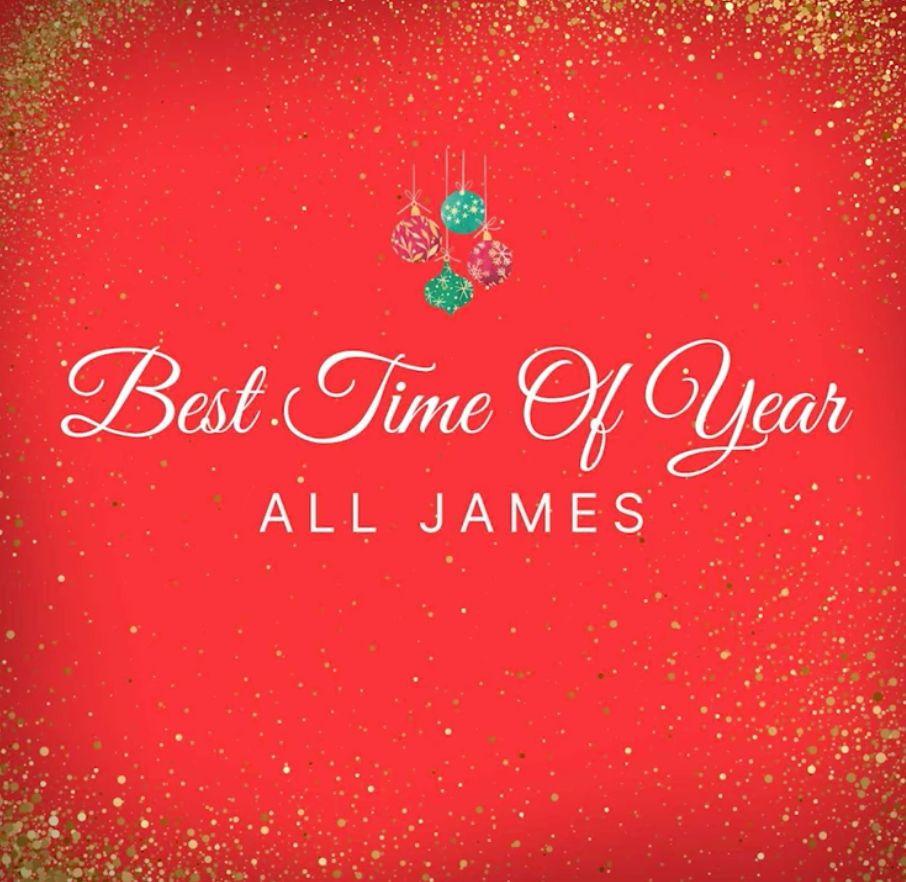To save musicians from being unwillingly bestowed with tacky or unusable gifts this Christmas, we’re putting out a PSA to step away from the gift-buying guides, which fool you into believing that EVERY musician will love the kitsch trash peddled in the Christmas gift guide game.
At Christmas, we are repetitively reminded, “It’s the thought that counts”. Yet, gift givers are becoming increasingly reliant upon ‘What to Buy for [insert personality type/relation to you] Guides’. These articles aren’t pushed into the public sphere to guide Christmas shoppers towards the perfect gift; they are an affiliate marketer’s racket. Don’t fall into the trap.
After pointing out all the faux pas, we would love to give you a definitive answer on how to spend your hard-earned cash on a guarantee of gift-derived gratitude, but that defeats the purpose of our point. No writer knows your recipient like you! ‘Perfect’ gifts always come to fruition by thinking along practical lines, looking for cues in past conversations, and aligning what you put under the tree with their unique attributes. And perhaps most importantly, remember musicians are more than one-dimensional entities. Don’t go down the linear-thinking rabbit hole believing gifts NEED to be music-related.

The Festive Affiliate Marketing Trap and How Not to Be Ensnared in It
Have you ever noticed that online Christmas gift guides are full of ‘handy’ links directing you to sites where you can buy the wares? If you follow that link and complete the purchase, you will put money directly into the pockets of the people attempting to capitalise on your indecision.
For each purchase, the website hosting the guide earns a commission; it is a common way for content creators and websites to monetise their traffic. But the exploitation of consumers doesn’t end there either! Some gift guides prioritise products which offer higher rates of affiliate commission rather than focusing on the quality or the suitability of the gifts. In turn, this increases profitability for the website at the expense of the gift giver and the recipient.
These gift-buying guides take advantage of how overwhelming, frustrating, and confusing the holiday season can be. Under the high pressure of finding the ‘perfect’ gift with limited time and often a limited budget, it isn’t surprising that many Christmas shoppers are drawn to these guides like a moth to a flame and find gratitude for the simplification of the decision-making process.
Another obvious flaw of these gift-giving guides is the lack of personalisation. Successful gift-giving requires an understanding of the recipient’s personality, tastes, and needs. As much as the creators of these gift guides want to fool you into believing that they provide the ultimate hack to Christmas shopping with the clever little spiel which appears at the top of the guides, it is nothing more than a highly effective marketing ploy. Gift guides, especially gift guides for musicians will almost ALWAYS result in generic and less-appreciated gifts!

To avoid the pitfalls of Christmas shopping guides, always put your knowledge of the recipient’s needs and preferences above the influence of content creators. Their commodified guides are far from gift-giving gospel. If you’re really at a loss on what to purchase for someone who is “hard to buy for”, you can eliminate the guesswork and ask if there is anything they want or need. Or if you would like to maintain an element of surprise, you can purchase a gift card from an online retailer. This may detract from the almost money-can’t-buy-experience of seeing someone unwrapping something they never knew they needed but instantly adore but on the flip side, there are plenty of benefits to not shooting in the dark or relying on the influence of affiliate marketers.
Bad gift-giving is more than just economically inefficient, harmful to the environment when it ends up in a pile of landfill and a major contribution to dust-collecting clutter. It’s a glaring indicator of thoughtlessness which puts a major dampener on what could have been a positive experience.
Gifts NO Musicians Want to Unwrap at Christmas
Even if your intended recipient lives and breathes music, a tacky effigy which attempts to capture the essence of their personality/hobby/vocation/career is always going to miss the mark. And if you are thinking about buying some new gear or an instrument without their input, don’t; musicians spend hours, if not days or weeks pondering over their new gear purchases. The chances of getting the purchase right on nothing more than your own intuition and misleading guides are slim to none. With that in mind, here are the biggest music-related gift faux pas:

Cheap Instruments and Gear
Earlier this year, Music Radar published a list of “49 affordable present ideas for music-makers (which they’ll actually use)”. Bizarrely, the top choice, dubbed ‘Best for Any Musician’ was the Fender Fullerton Jazzmaster Ukulele. Given that Ukuleles are music gear marmite, it’s almost laughable how wrong this recommendation is. Also on the list was a Haynes ‘build your own synth’ kit; even if your recipient does manage to get it to function after hours of tinkering, it will sound as cheap as the £26 price tag.
Novelty Instrument Accessories
Every guitarist needs plectrums; NO guitarist needs cheap novelty or personalised plectrums, which are more likely to break than bend around the strings. The same goes for drummers and novelty drumsticks. Every instrumentalist goes through the rigmarole of discovering which playing accessory works best for them; don’t fall into the trap of thinking it is a fool-proof purchase! When it comes to instrument-related purchases, one size never fits all.
Anything Gimmicky
No musician likes what they are serious about to be made into a parody via a tacky t-shirt with a cringey slogan they would be too embarrassed to wear to Tesco. The same goes for guitar-shaped spatulas and spoons or any cliché piece of homeware which is soullessly mass-produced in the hope some sucker will be lazy enough to view it as the perfect option.
Questionably Purchased High Price Tag Gear
In many gift guides for musicians, you will find high-ticket items such as monitor headphones, microphones, guitar amps, and recording gear. Throwing excess money into a purchase won’t buy you a guarantee it will be well-received. In fact, you’ll probably make the recipient feel awful that you’ve wasted so much money on an unsuitable gift they can’t wait to stick on eBay. If you do want to part with a significant part of your salary to make someone feel special, whack the money you would have spent on a music store gift card, pay for a session in a studio, or offer to contribute to a larger purchase they are planning to make.
Article by Amelia Vandergast






